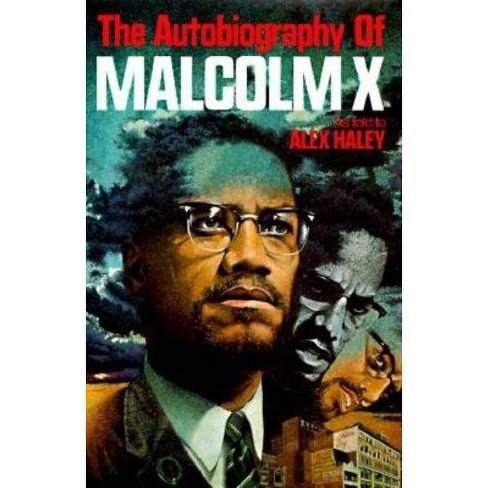“The Autobiography of Malcolm X” is a compelling and influential book that provides a powerful account of Malcolm X’s life and his journey towards becoming one of the most prominent figures in the civil rights movement. The book, which was co-authored by Malcolm X and Alex Haley, offers an in-depth exploration of Malcolm X’s experiences, beliefs, and transformation.
One of the most striking aspects of the autobiography is its raw honesty. Malcolm X recounts his early struggles, including his impoverished childhood, involvement in criminal activities, and eventual imprisonment. He openly shares his personal transformation during his time in prison, where he discovered the Nation of Islam and embraced its teachings. Malcolm X’s description of his spiritual awakening and his subsequent rise within the Nation of Islam is truly captivating.
Throughout the book, Malcolm X reflects upon the systemic racism and oppression faced by African Americans, addressing issues of racial inequality, police brutality, and the failure of the American Dream to be inclusive. His analysis of the racial dynamics in the United States remains relevant even today, underscoring the book’s enduring significance.
Moreover, “The Autobiography of Malcolm X” delves into Malcolm X’s ideological evolution. After breaking away from the Nation of Islam, he embarked on a pilgrimage to Mecca, which profoundly impacted his worldview. This journey broadened his perspective on race and religion, leading him to embrace a more inclusive approach towards achieving civil rights. This shift is especially significant as it showcases Malcolm X’s willingness to reassess his beliefs and seek common ground with other racial and religious groups.
Alex Haley’s role in co-authoring the autobiography cannot be overlooked. As a skilled interviewer and writer, Haley played a crucial part in shaping and organizing the narrative. Through his collaboration with Malcolm X, Haley ensured that the book captured the essence of Malcolm X’s voice and experiences.
“The Autobiography of Malcolm X” is a thought-provoking and thoughtfully written book that challenges readers to confront issues of race, identity, and social justice. It serves as a powerful testament to Malcolm X’s life, his quest for self-discovery, and his unwavering commitment to fight against racial inequality. Whether you are interested in history, civil rights, or personal narratives, this autobiography offers a valuable and enlightening perspective.
Malcolm X and Alex Haley collaborated on the writing of “The Autobiography of Malcolm X,” a powerful and influential book that delves into Malcolm X’s life and his profound impact on the civil rights movement. This collaborative effort resulted in a compelling narrative that explores Malcolm X’s experiences, beliefs, and transformation.
The autobiography stands out for its unfiltered honesty, as Malcolm X fearlessly recounts his early struggles and turbulent upbringing. Born as Malcolm Little in Omaha, Nebraska, he grew up in poverty and witnessed the harsh realities of racism from a young age. He details his family’s confrontations with white supremacist groups like the Ku Klux Klan, which left a lasting impression on his understanding of racial inequality.
Malcolm X’s path took a significant turn when he moved to Harlem in the 1940s, becoming involved in criminal activities and eventually landing in prison. It was during his incarceration that he encountered the teachings of Elijah Muhammad and the Nation of Islam. This encounter served as a catalyst for his personal transformation and ideological development. Malcolm X embraced the Nation of Islam’s teachings, which emphasized black self-reliance, separatism, and a critique of white supremacy.
The autobiography vividly describes Malcolm X’s rise within the Nation of Islam, his role as a prominent spokesperson, and his contributions to the organization’s growth. His fiery and passionate speeches gained him a substantial following and made him a symbol of black pride and resistance. However, as Malcolm X delved deeper into the teachings of Elijah Muhammad and the Nation of Islam, he also became aware of the limitations and drawbacks of their ideology.
The turning point in Malcolm X’s life came after a pilgrimage to Mecca in 1964, a transformative experience that shattered his previous beliefs and opened his eyes to the diversity within the Islamic faith. This journey compelled him to reassess his views on race and religion, leading him to adopt a more inclusive stance and advocate for broader alliances in the struggle for civil rights.
Throughout the book, Malcolm X addresses the systemic racism and oppression faced by African Americans, challenging the status quo and advocating for change. He exposes the hypocrisy of the American Dream, arguing that it systematically excludes and marginalizes people of color. His powerful critique of racial injustice resonates even today and continues to inspire generations of activists.
Alex Haley’s contribution to the autobiography was instrumental in shaping the narrative and capturing the essence of Malcolm X’s voice. Haley, an accomplished writer and interviewer, skillfully conducted interviews with Malcolm X, drawing out his personal anecdotes, reflections, and insights. Haley’s role as a co-author ensured that the autobiography authentically reflected Malcolm X’s experiences and ideas.
“The Autobiography of Malcolm X” remains a thought-provoking and impactful book, challenging readers to confront the enduring issues of race, identity, and social justice. It serves as a testament to Malcolm X’s remarkable life, his pursuit of self-discovery, and his unwavering dedication to fighting racial inequality. This autobiography offers a valuable and enlightening perspective for those interested in history, civil rights, and personal narratives.










